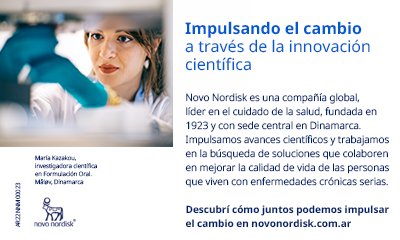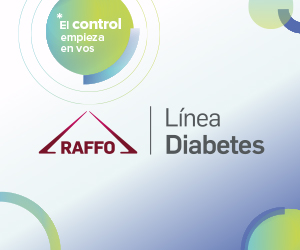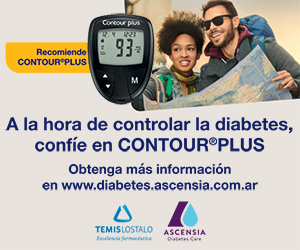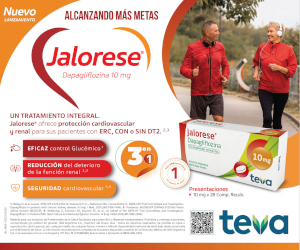Innovation Committee. Use of continuous insulin infusion systems in people with DM1/ Indications for the use of continuous glucose monitoring
DOI:
https://doi.org/10.47196/diab.v58i1Sup.763Keywords:
insulin pump, automated insulin dosing, continuous glucose monitoring, continuous subcutaneous insulin infusion, hypoglycemia, glucose sensorsAbstract
The use of insulin pumps has led to improvements in the quality of care for patients with diabetes, mainly type 1, in terms of lowering hemoglobin A1c and reducing the frequency and severity of hypoglycemia. Continuous innovations in subcutaneous continuous insulin infusion technology (SCIT) technology have led to the development of a wide range of insulin infusion products, from disposable patch-type devices to sophisticated insulin pumps with advanced features to automate insulin dosing. These advances have made it possible to change the lives of people with diabetes, allowing the burden of disease to be reduced. In these recommendations we summarize the main evidence for the indication and use of these devices.
References
I. American Diabetes Association Professional Practice Committe. Introduction and methodology: Standards of Care en Diabetes 2024. Diabetes Care 2024;47(Supp 1):S1-S4.
II. Grunberger G, Sherr J, Allende M, Blevins T, Bode B, Handelsman Y, et al. American Association of Clinical Endocrinology Clinical Practice Guideline: the use of advanced technology in the management of persons with diabetes mellitus. Endocr Pract 2021;27(6):505-537.
III. Reznik Y. Handbook of diabetes technology. Handb Diabetes Technol 2019;1117.
IV. Costa-Gil JEC, Ferraro M, Ruiz ML, Litwak LE. Guía para el uso de bombas de insulina en Argentina; 2011. Disponible en: http://diabetes.org.ar/2019/images/Opiniones/Guia-Bombas-Insulina-2011.pdf.
V. Heller S, White D, Lee E, Lawton J, Pollard D, Waugh N, et al. A cluster randomised trial, cost-effectiveness analysis and psychosocial evaluation of insulin pump therapy compared with multiple injections during flexible intensive insulin therapy for type 1 diabetes: The REPOSE Trial. Health Technol Assess 2017;21(20):1-28.
VI. Yeh HC, Brown TT, Maruthur N, Ranasinghe P, Berger Z, Suh YD, et al. Comparative effectiveness and safety of methods of insulin delivery and glucose monitoring for diabetes mellitus. A systematic review and meta-analysis. Annals Inter Med 2012;157(5):336-347.
VII. Sherr J, Schoelwer M, Dos Santos TJ, et al. ISPAD Clinical Practice Consensus Guidelines 2022: Diabetes technologies: Insulin delivery. Pediatr Diabetes 2022;1-26.
VIII. Choudhary P, Campbell F, Joule N, Kar P. A Type 1 diabetes technology pathway: consensus statement for the use of technology in type 1 diabetes. Diabet Med. 2019;36(5):531-538.
IX. Peters AL, Ahmann AJ, Battelino T, Evert A, Hirsch IB, Murad MH, et al. Diabetes technology-continuous subcutaneous insulin infusion therapy and continuous glucose monitoring in adults: An endocrine society clinical practice guideline. Journal of Clinical Endocrinology and Metabolism 2016;101(11):3922-3937.
X. Sundberg F, de Beaufort C, Lars Krogvold L et al. ISPAD Clinical Practice Consensus Guidelines 2022: Managing diabetes in preschoolers. Pediatric Diabetes 2022; 23:1496-1511.
XI. Rodríguez-Saldana J. The Diabetes Textbook; 2019.
XII. Steineck I, Cederholm J, Eliasson B, Rawshani A, Eeg-Olofsson K, Svensson AM, et al. Insulin pump therapy, multiple daily injections, and cardiovascular mortality in 18 168 people with type 1 diabetes: Observational study. BMJ 2015;350. doi: 10.1136/bmk.h3234.
XIII. Farrar D, Tuffnell DJ, West J, West HM. Continuous subcutaneous insulin infusion versus multiple daily injections of insulin for pregnant women with diabetes. Cochrane database Syst Rev 2016;(6):CD005542.
XIV. Landau Z, Abiri S, Gruber N, Levy-Shraga Y, Brener A, Lebenthal Y, et al. Use of flash glucose-sensing technology (FreeStyle Libre) in youth with type 1 diabetes: AWeSoMe study group real-life observational experience. Acta Diabetol 2018;55(12):1303-10. doi: 10.1007/s00592-018-1218-8.
XV. Danne T, Nimri R, Battelino T, Bergenstal RM, Close KL, DeVries JH, et al. International Consensus on Use of Continuous Glucose Monitoring. Diabetes Care 2017 Dec 1;40(12):1631-1640.
XVI. Guzmán G, Martínez V, Yara JD, Mina MA, Solarte JS, Victoria AM, et al. Glycemic control and hypoglycemia in patients treated with insulin pump therapy. An observational study. J Diabetes Res. 2020;2020:1581726. doi: 10.1155/2020/1581726.
XVII. Collyns OJ, Meier RA, Betts ZL, Chan DSH, Frampton C, Frewen CM, et al. Improved glycemic outcomes with medtronic minimed advanced hybrid closed-loop delivery: Results from a randomized crossover trial comparing automated insulin delivery with predictive low glucose suspend in people with type 1 diabetes. Diabetes Care. 2021;44(4):969-75.
XVIII. Bergenstal RM, Nimri R, Beck RW, Criego A, Laffel L, Schatz D, et al. A comparison of two hybrid closed-loop systems in adolescents and young adults with type 1 diabetes (FLAIR): a multicentre, randomised, crossover trial. Lancet 2021;397(10270):208-19. doi: 10.1016/S0140-6736(20)32514-9
XIX. Feig DS, Corcoy R, Donovan LE, Murphy KE, Barrett JFR, Johanna Sanchez J, et al. Pumps or multiple daily injections in pregnancy involving type 1 diabetes. A prespecified analysis of the CONCEPTT randomized trial. Diabetes Care. 2018;41(12):2471-9.
XX. Diabetes Technology: Standards of Medical Care in Diabetes 2024. Diabetes Care 2024;47(Supp-1):S126-S144.
XXI. De Portu S, Vorrink L, Re R, Shin J, Castaneda J, Habteab A, et al. Randomised controlled trial of Advanced Hybrid Closed Loop in an Adult Population with Type 1 Diabetes (ADAPT). Study protocol and rationale. BMJ Open. 2022;12(2):1-7.
XXII. Roze S, Buompensiere MI, Ozdemir Z, de Portu S, Cohen O. Cost-effectiveness of a novel hybrid closed-loop system compared with continuous subcutaneous insulin infusion in people with type 1 diabetes in the UK. J Med Econ 2021;24(1):883-90. doi: 10.1080/13696998.2021.1939706
XXIII. Blackman SM, Raghinaru D, Adi S, Simmons JH, Ebner-Lyon L, Chase HP, et al. Insulin pump use in young children in the T1D Exchange clinic registry is associated with lower hemoglobin A1c levels than injection therapy. Pediatr Diabetes 2014;15(8):564-572.
XXIV. Phillip M, Battelino T, Rodríguez H, et al. Use of insulin pump therapy in the pediatric age-group: consensus statement from the European Society for Paediatric Endocrinology, the Lawson Wilkins pediatric Endocrine Society, and the International Society for Pediatric and Adolescent Diabetes, endorsed by the American Diabetes Association and the European Association for the Study of diabetes. Diabetes Care. 2007;30(6):1653-1662
XXV. Sundberg F, Barnard K, Cato A, et al. Managing diabetes in preschool children. Pediatr Diabetes 2017;18(7):499-517.
XXVI. Serné EH, Roze S, Buompensiere MI, et al. Cost-effectiveness of hybrid closed loop insulin pumps versus multiple daily injections plus intermittently scanned glucose monitoring in people with type 1 diabetes in The Netherlands. Adv Ther 2022 Apr;39(4):1844-1856.
XXVII. Lambadiari V, Ozdemir-Saltik AZ, de Portu S, et al. Cost-effectiveness analysis of an advanced hybrid closed-loop insulin delivery system in people with type 1 diabetes in Greece. Diabetes Technol Ther 2022 May;24(5):316-323.
Downloads
Published
How to Cite
Issue
Section
License
Copyright (c) 2024 on behalf of the authors. Reproduction rights: Argentine Diabetes Society

This work is licensed under a Creative Commons Attribution-NonCommercial-NoDerivatives 4.0 International License.
Dirección Nacional de Derecho de Autor, Exp. N° 5.333.129. Instituto Nacional de la Propiedad Industrial, Marca «Revista de la Sociedad Argentina de Diabetes - Asociación Civil» N° de concesión 2.605.405 y N° de disposición 1.404/13.
La Revista de la SAD está licenciada bajo Licencia Creative Commons Atribución – No Comercial – Sin Obra Derivada 4.0 Internacional.
Por otra parte, la Revista SAD permite que los autores mantengan los derechos de autor sin restricciones.


































